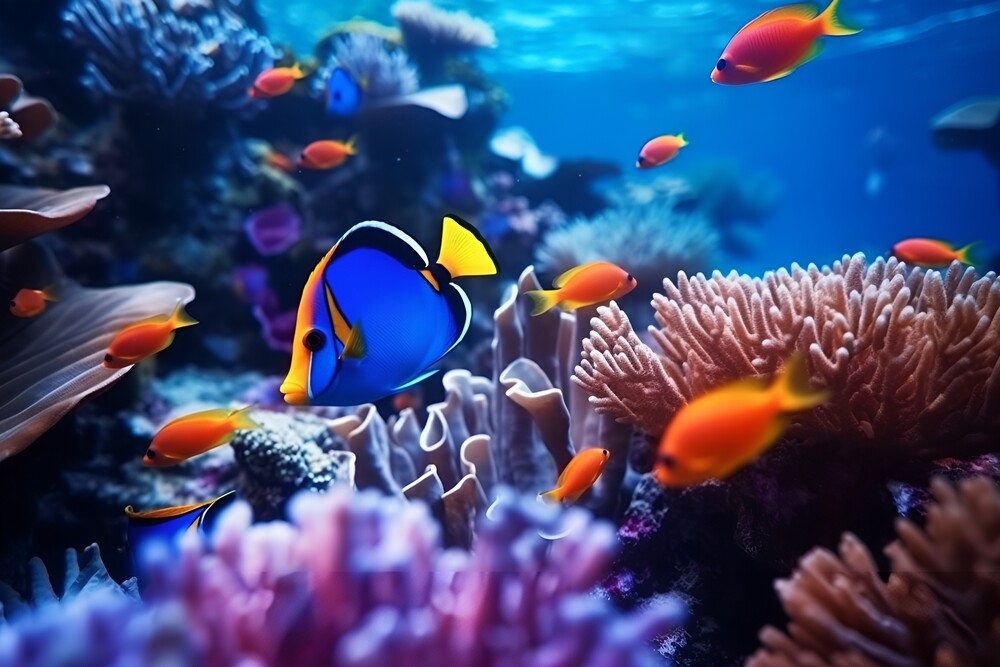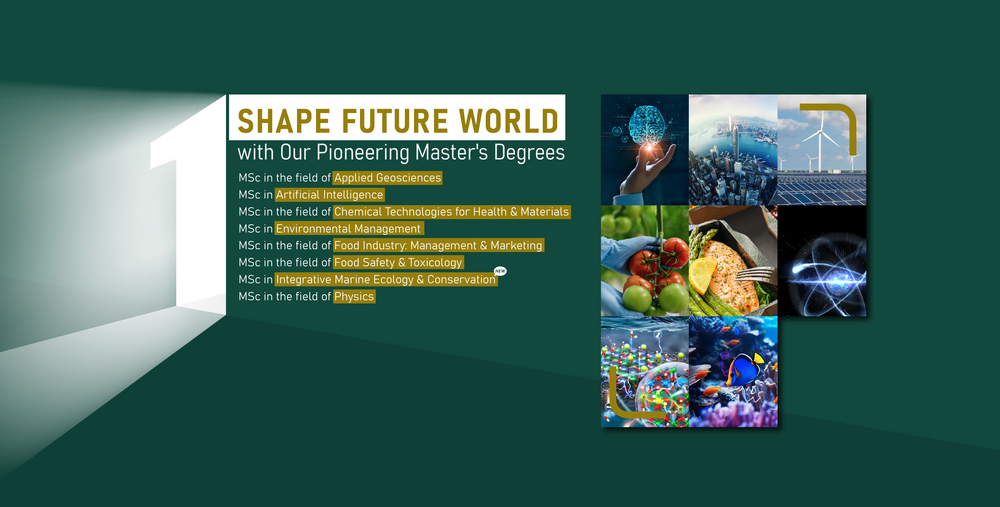Safeguarding our oceans for a sustainable future through integrated marine ecology and conservation practices

Introducing the Master of Science in Integrative Marine Ecology & Conservation – a dynamic and comprehensive programme designed to equip graduates with the expertise needed to address the pressing challenges of our marine environments. The curriculum offers an in-depth exploration of coastal ocean biodiversity, fisheries, and the sustainable exploitation of marine resources, such as the seafood trade. Students will gain a thorough understanding of the biogeochemical functions of marine ecosystems and the advanced conservation strategies necessary for their preservation, including mariculture and ecological restoration. As global pressures on our oceans intensify, this programme prepares the next generation of professionals to lead innovative and sustainable marine ecology and conservation solutions.
 | Hosts School of Biological Sciences & The Swire Institute of Marine Science |
 | Programme Features
|
| Programme Details | |
| Q&A about the Programme | |
Q: A: | How does the programme engage with the leading-edge domains in marine ecology and conservation? The Master of Science in Integrative Marine Ecology & Conservation programme delves into biodiversity, fisheries management, and conservation genomics domains. Courses like Ocean Biodiversity and Fisheries provide foundational knowledge on the role of biodiversity in ecosystem health and sustainable fisheries management. The programme also explores innovative areas such as mariculture, blue carbon ecosystems, and the use of genomics tools for conservation, equipping students with techniques and an understanding of the socio-economic impacts of marine resource management. |
Q: A: | What will I learn from this programme? You will gain a comprehensive understanding of marine biodiversity, fisheries management, and the sustainability of seafood production. The curriculum covers essential topics such as the role of biodiversity in ecosystem services, the principles of sustainable fisheries, and the socio-economic aspects of global seafood trade. You will also explore advanced genomics for conservation, the biogeochemical cycles in blue carbon ecosystems, and techniques for sustainable development and engineering of coastal environments. The capstone courses provide hands-on experience in research or project-based learning, ensuring you develop practical skills and in-depth knowledge. |
Q: A: | Are there opportunities for interdisciplinary learning? Absolutely. The programme emphasises interdisciplinary learning by integrating core principles of marine ecology with socio-economic, technological, and policy aspects. Courses such as Qualitative Data, Social Science Methods and Decision-making in Environmental Science and Environmental Policy highlight the importance of socio-economic considerations and policy frameworks in marine conservation. Elective courses in technology entrepreneurship, professional development, and science communication ensure a well-rounded education that prepares students for diverse roles in the field. |
Q: A: | How does the programme equip students for the future workforce? By offering a blend of theoretical knowledge and practical skills. Our courses provide hands-on experience in areas such as fisheries management, conservation genomics, and environmental impact assessment. The capstone Dissertation or Project allows students to engage in independent or collaborative research, while the Internship course offers real-world experience in universities, NGOs, or commercial companies. |
Q: A: | What sets this programme apart from similar courses? Our unique combination of cutting-edge research with practical applications in marine ecology and conservation. The programme offers a holistic approach that integrates biodiversity, fisheries management, and socio-economic considerations with advanced technologies such as genomics and sustainable engineering. What distinguishes our programme from others, is the emphasis on interdisciplinary learning, real-world applications, and hands-on experience through capstone projects and internships. We prepare students not just to understand marine ecosystems but to innovate and lead in their conservation. |
Q: A: | What career path can I expect after finishing the programme? The future career paths include environmental consulting, fisheries management, marine conservation NGOs, government agencies, and research institutions. The skills acquired in sustainable development and technology entrepreneurship open opportunities in the private sector, including roles in aquaculture, seafood trade, and environmental policy advocacy. The programme also prepares students for further academic pursuits or leadership roles in marine conservation initiatives. |
| < Previous | Next > |


